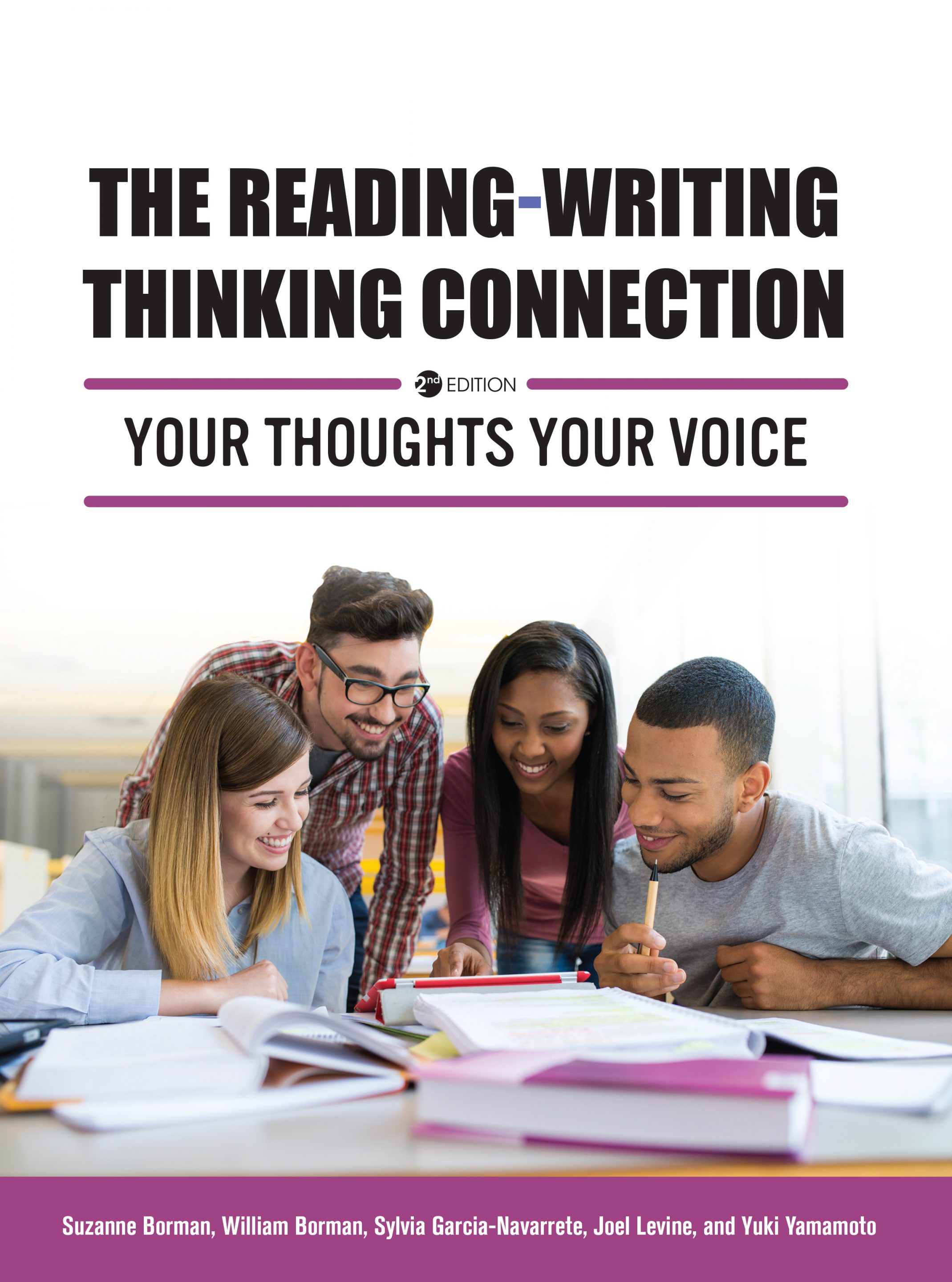The second edition of The Reading-Writing Thinking Connection: Your Thoughts Your Voice puts into your students’ hands a unique educational innovation – Thinking-Centered Education. The title has been chosen to communicate to students a clear sense of what their experience will be as they progress through this book to fulfill their English composition/freshman composition requirement.
The most important words in the title are: “Your Thoughts Your Voice.” All students have experienced struggles and successes in education, as well as in life. Their thoughts, feelings, and ideas need to be heard and given expression as a contribution to the common good and their own well-being.
The 20 seminars students experience as they use this book are organized into four parts around six discipline areas: education, social issues, history, philosophy, science, and psychology. A social justice theme recurs throughout as students read and write across these discipline areas. Further, the ideas and information in these areas will be indispensable to their continued journey through higher education. As they use the sixteen Thinking-Centered Tools to read and write about topics in these discipline areas, the ideas they gain and thoughts they create will open up a new world of understanding. The goal is for students to be able to think independently, work collaboratively, inquire with focus, and express their ideas and thoughts (voices) with confidence – to become artists of the written and spoken word.


